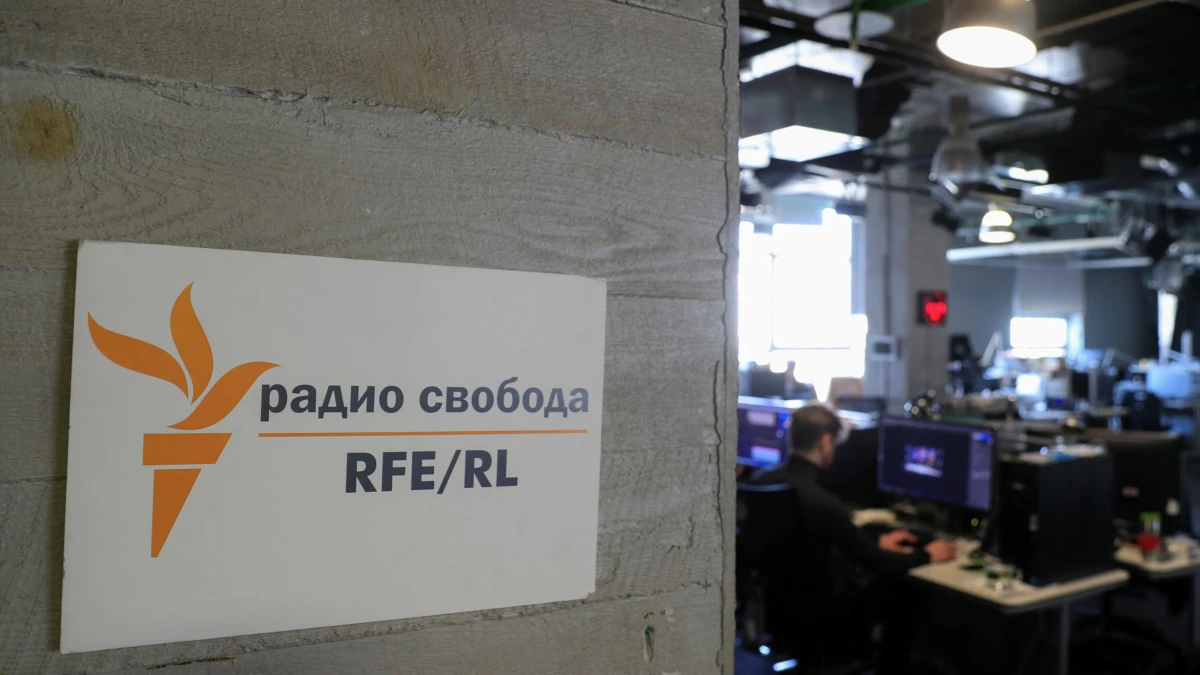
RFE/RL has filed an urgent petition with the European Court of Human Rights (ECHR) to block Russia from enforcing penalties for violations of its controversial “foreign agent” law that could cost the broadcaster more than $1 million.
The broadcaster said in a news release late on April 15 that it had asked the court in Strasbourg to grant interim measures ordering Russia to refrain from enforcing hundreds of “administrative protocols” that it has brought or threatened to bring against the media organization under the law, which critics say is aimed at muzzling independent media, especially RFE/RL.
The interim measures would be in place until the court can rule on the Russian government’s actions, RFE/RL said.
The “foreign agent” laws apply to foreign-funded media and to nongovernmental organizations that have been judged by the government as engaging in political activity and that receive foreign funding.
The laws have been widely criticized as aiming to undermine civil society and discredit critical reporting and dissent.
While RFE/RL has complied with all of its legal obligations under the “foreign agent” law, it has declined to implement the new labeling requirement established by the state media-monitoring agency Roskomnadzor.
The measures are “clearly intended to damage its reputation and viability as an independent media organization in Russia,” RFE/RL’s news release said.
As a result, Roskomnadzor has filed 390 violation cases, so-called protocols, against RFE/RL’s Moscow bureau and its general director, Andrei Shary, over a period of three months. Fines from those actions total approximately $1,430,000.
Roskomnadzor is due to begin filing an additional 130 cases against RFE/RL and Shary on April 16, with additional fines estimated at nearly $1 million, RFE/RL said.
If the fines are not paid, Russian authorities have the power to place RFE/RL into insolvency and/or to block access to its media sites, while Shary faces the prospect of a prison sentence of up to two years and personal bankruptcy.
RFE/RL argues that Russia’s actions violate the rights to freedom of expression and freedom of the press that are protected by Article 10 of the European Convention on Human Rights and says that if the court does not act now, its Moscow bureau and its general director “will suffer irreversible harms.”
RFE/RL also warned that, left unchecked, the Kremlin’s campaign will have a chilling effect on what is left of independent media in Russia.
“RFE/RL will not be put in a position of undermining freedom of speech and journalistic integrity,” RFE/RL President Jamie Fly said.
“We will not allow Roskomnadzor and the Kremlin to make editorial decisions about how we engage our audiences in Russia,” he was quoted as saying.
RFE/RL hopes the ECHR “will view these actions by the government of Russia for what they are: an attempt to suppress free speech and the human rights of the Russian people, and a dangerous precedent at a time when independent media are under assault around the globe,” Fly said.
Russia’s so-called “foreign agent” legislation was adopted in 2012 and has been modified repeatedly. It requires nongovernmental organizations that receive foreign assistance and that the government deems to be engaged in political activity to be registered, to identify themselves as “foreign agents,” and to submit to audits.
Later modifications of the law targeted foreign-funded media. In 2017, the Russian government placed RFE/RL’s Russian Service, known locally as Radio Svoboda, six other RFE/RL Russian-language news services, and Current Time on the list.
Since October, Roskomnadzor has ordered broadcasters designated as foreign agents to add a lengthy statement to news reports, social-media posts, and audiovisual materials specifying that the content was created by an outlet “performing the functions of a foreign agent.”
RFE/RL is an editorially independent media company funded by a grant from the U.S. Congress through the U.S. Agency for Global Media. Each week, nearly 7 million people access RFE/RL’s news portals in Russia.
RFE/RL’s Russian-language news services are the only international media outlets with a physical presence in Russia to have been designated “foreign agents.”